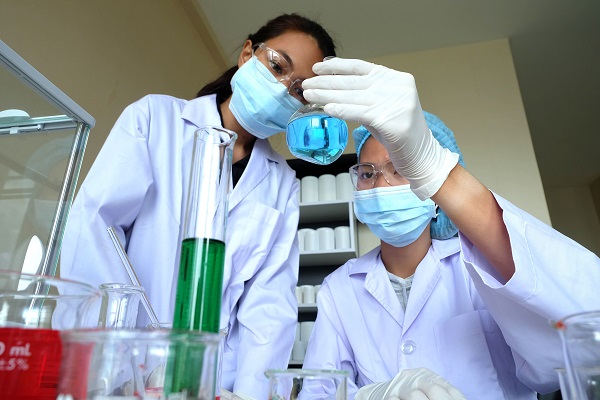In the ever-evolving world of pharmaceuticals, compliance with global manufacturing standards is non-negotiable. Among the most recognized certifications is the WHO-GMP (World Health Organization – Good Manufacturing Practices). But what does it truly mean to be a WHO-GMP certified pharma company in India?
In this blog, we’ll explore the standards, implications, and how Tanishq Lifecare proudly upholds this certification to deliver high-quality, safe, and effective pharmaceutical products.
What is WHO-GMP Certification?
WHO-GMP certification refers to the quality assurance standard laid down by the World Health Organization. It ensures that pharmaceutical manufacturing processes are conducted under stringent hygiene, safety, and documentation protocols. Key aspects include:
- Controlled environments (cleanrooms)
- Trained personnel
- Standard Operating Procedures (SOPs)
- Batch-wise traceability
- Rigorous quality control checks
Being WHO-GMP certified is not just about compliance; it’s a commitment to public health and safety.
WHO-GMP vs. GMP – What’s the Difference?
While GMP (Good Manufacturing Practices) is a basic pharmaceutical standard enforced by national regulatory bodies, WHO-GMP is an international benchmark that often exceeds national regulations.
| GMP | WHO-GMP |
| Country-specific (e.g., India’s Schedule M) | Globally harmonized WHO standards |
| Basic compliance | More detailed and globally accepted |
| Varies in stringency | Uniform and export-oriented |
At Tanishq Lifecare, we don’t just meet Indian GMP—we exceed it by adhering to WHO-GMP.
Why WHO-GMP Matters in Indian Pharmaceutical Manufacturing
India is known as the “pharmacy of the world.” In this global role, it is crucial that Indian manufacturers match international standards. WHO-GMP certification:
- Boosts credibility in domestic and international markets
- Facilitates smoother export approvals
- Ensures safety, efficacy, and consistency of products
- Reduces batch failures and recalls
- Enhances trust among healthcare providers and patients
According to the World Health Organization, WHO-GMP helps ensure that products are consistently produced and controlled to quality standards appropriate for their intended use.
How Tanishq Lifecare Upholds WHO-GMP Compliance
At Tanishq Lifecare, we have embedded WHO-GMP standards into every layer of our manufacturing and operations. Here’s how:
1. Certified Manufacturing Infrastructure
Our pharmaceutical manufacturing facilities in Ahmedabad are WHO-GMP approved and ISO 9001:2015 certified. They include:
- Dedicated zones for sterile and non-sterile operations
- Controlled HVAC systems
- Microbiology labs and stability chambers
2. Documentation & SOPs
Every stage from raw material intake to final packaging—is governed by validated SOPs and comprehensive documentation.
3. Quality Control & Assurance
All batches are subjected to rigorous testing for:
- Stability
- Potency
- Purity
- Contamination control
4. Global-Ready Compliance
We provide CTD/eCTD dossier support, Free Sale Certificates, and Certificate of Pharmaceutical Product (CoPP) for exports.
5. Ethical and Transparent Processes
Our commitment is not just to certifications, but to genuine, patient-focused pharmaceutical care.
FAQs: WHO-GMP Certified Pharma Company in India
1. What makes Tanishq Lifecare a WHO-GMP certified pharma company in India?
Tanishq Lifecare holds WHO-GMP certification for its manufacturing facilities, which means every process we follow meets global standards of safety, cleanliness, and documentation. We’re regularly audited and trusted by international pharma partners.
2. How does WHO-GMP certification improve pharmaceutical manufacturing in India?
It enhances product safety, reduces risks of contamination, ensures batch consistency, and increases trust among doctors, distributors, and global regulators.
3. Why should global buyers choose a WHO-GMP certified pharma exporter in India?
Because it guarantees international quality, streamlined regulatory approvals, and reduced compliance risks. WHO-GMP certified companies like Tanishq Lifecare are more likely to meet the standards of regulators across Asia, Africa, and Latin America.
4. Is WHO-GMP certification required for third-party manufacturing?
No, but it is highly recommended. Partnering with a WHO-GMP certified manufacturer ensures your brand maintains credibility and compliance.
5. Does Tanishq Lifecare offer export support as a WHO-GMP certified company?
Yes! We assist with documentation, product registration, and regulatory support for multiple international markets.
Conclusion
Being a WHO-GMP certified pharma company in India is more than a badge—it’s a global commitment to quality and trust. At Tanishq Lifecare, we not only meet this standard but embody it in our processes, products, and partnerships.
Whether you’re a startup or a seasoned distributor, partner with us for compliant, export-ready, and trustworthy pharmaceutical manufacturing.
👉 Get in touch with us today to discuss how we can support your pharma business journey.

